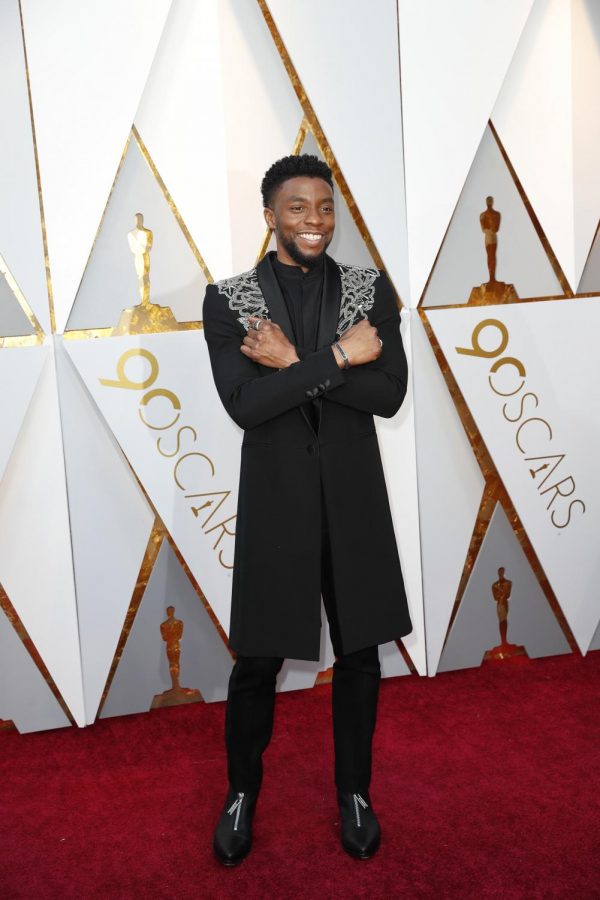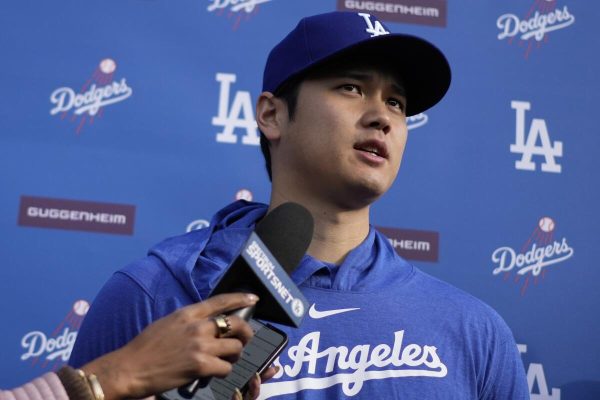Seybert: Representation matters
Actor Chadwick Boseman passes away from long battle with colon cancer
Aug 31, 2020
On August 28, 2020, the world lost an amazing actor to stage four colon cancer. Chadwick Boseman was best known for his beautiful portrayals of historical figures such as Jackie Robinson in 42, James Brown in Get On Up and Thurgood Marshall in Marshall. Yet perhaps his most widely recognized role was that of T’Challa in Black Panther. Until Black Panther was released in 2018, Black superheroes on the big screen had only been something to dream about. There had been Black sidekicks, sure (Frozone from The Incredibles, Storm from X-Men, Falcon from Captain America: Winter Soldier); but none of them had ever been able to claim the role of the main character.
As a white cisgender woman, I personally cannot imagine what it must have been like for Black kids to grow up without a Black superhero to look up to. There is something special about seeing someone on the screen who looks like you. When Wonder Woman came out in theaters in 2017, I remember being ecstatic to finally see a woman fighting crime and saving the world instead of leaving it up to the men. That feeling of being represented and finally seeing someone who looks like you claim the main role is something that the Black community still has to fight for every day. For example, my excitement at Wonder Woman being the subject of a movie is slightly diminished when I realize that she is white, along with every other female superhero in the Marvel and DC franchises (Captain Marvel, Black Widow, Scarlet Witch, etc.). So while I was elated, the Black community was still at a loss.
That all changed when Black Panther was released. Finally, after years of Black people being portrayed exclusively as sidekicks or villains, a Black hero was taking center stage. Not only that, but the rest of the cast consisted of Black actors and actresses as well. Black boys got to see Prince T’Challa (Chadwick Boseman) and his cousin Killmonger (Michael B. Jordan) duke it out for Wakanda’s throne; meanwhile, Black girls could watch genius Shuri (Letitia Wright) and warriors Nakia (Lupita Nyong’o) and Okoye (Danai Gurira) hold down the fort, so to speak. Both Black men and women played major roles in this film, which gave people hope that more Black superheroes were to come.
While the death of Chadwick Boseman might seem trivial or minor compared to the current state of the world, take a second to think about how his passing has directly impacted the Black community. Amidst protests and riots and fighting for their right to live, Black people have just lost a beacon of hope for eradicating racial bias in Hollywood, and by extension, America. All they wanted was to show other people what they already knew: that they could be superheroes too.
Superheroes are not just fun characters in movies or comic books that fight crime; they serve as role models for kids and adults alike, showing them that they too could be heroes if given the chance. Superheroes inspire kids to be “the good guys” and make them feel powerful, which in turn boosts their self-confidence. Likewise, when a kid sees a superhero that looks like them (skin color, hairstyle, etc.), they tend to latch onto that superhero because they see themselves in them. They want to be superheroes too, and when they see a hero that looks like them, they believe they can be.
Although Chadwick Boseman is gone in body, his legacy lives on. When kids dress up as heroes now, they’re not confined to capes belonging to Batman and Superman; instead, they can lower Black Panther’s mask over their faces and pretend to fight for Wakanda, a technological utopia defended by Black heroes, men and women alike.
Representation is essential in showing the Black community (and any BIPOC community) that they do not have to settle for being the sidekicks. They deserve to be celebrated and revered just as much as their white counterparts. Chadwick Boseman helped further this ideal by serving as a call to change within the racial rhetoric of the nation, something that will not die with him. Through his acting, he inspired thousands of adults and children to celebrate their melanin and to stand up for what they believe. Above all else, his representation showed people that they did not have to be white to be the story’s hero.


















